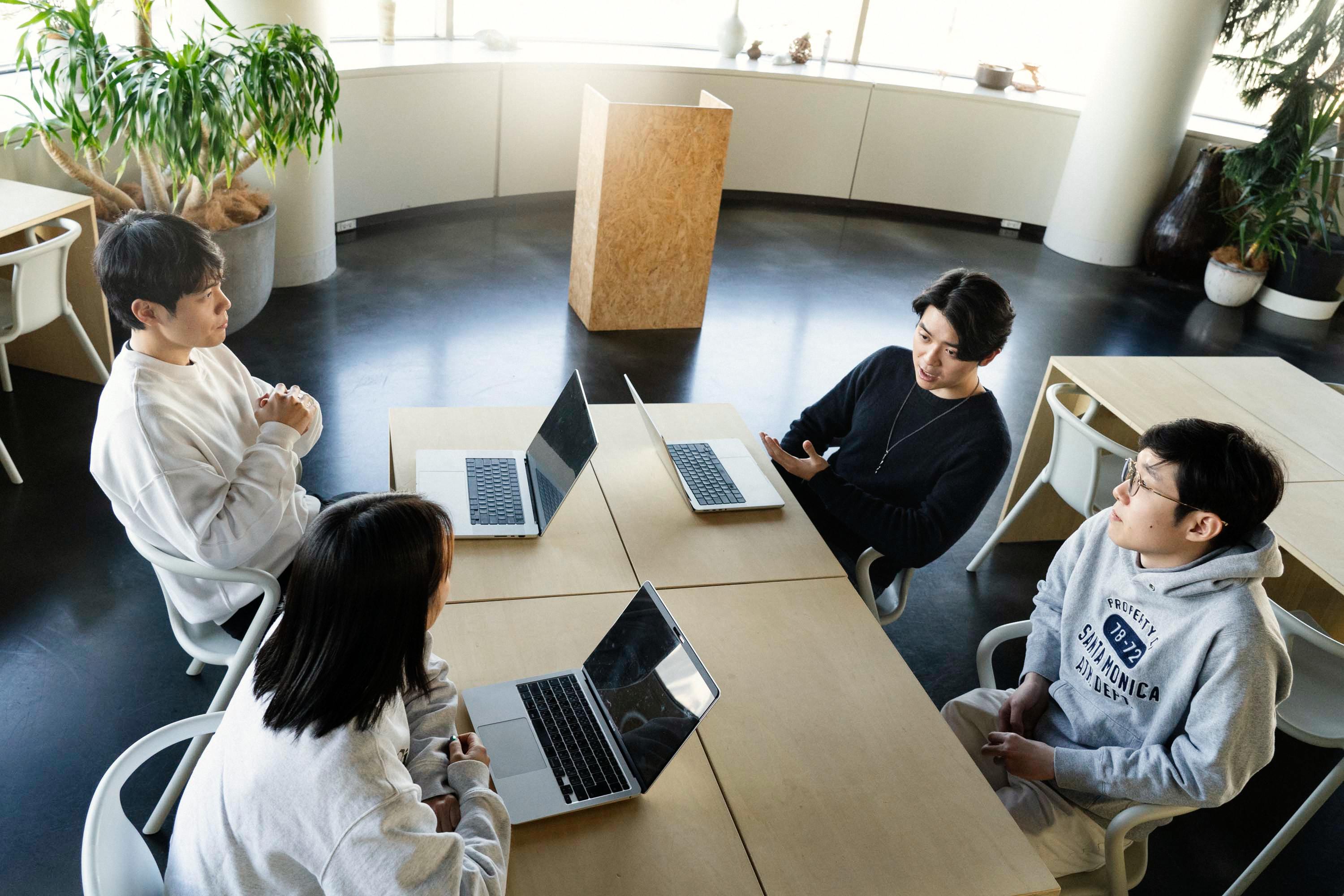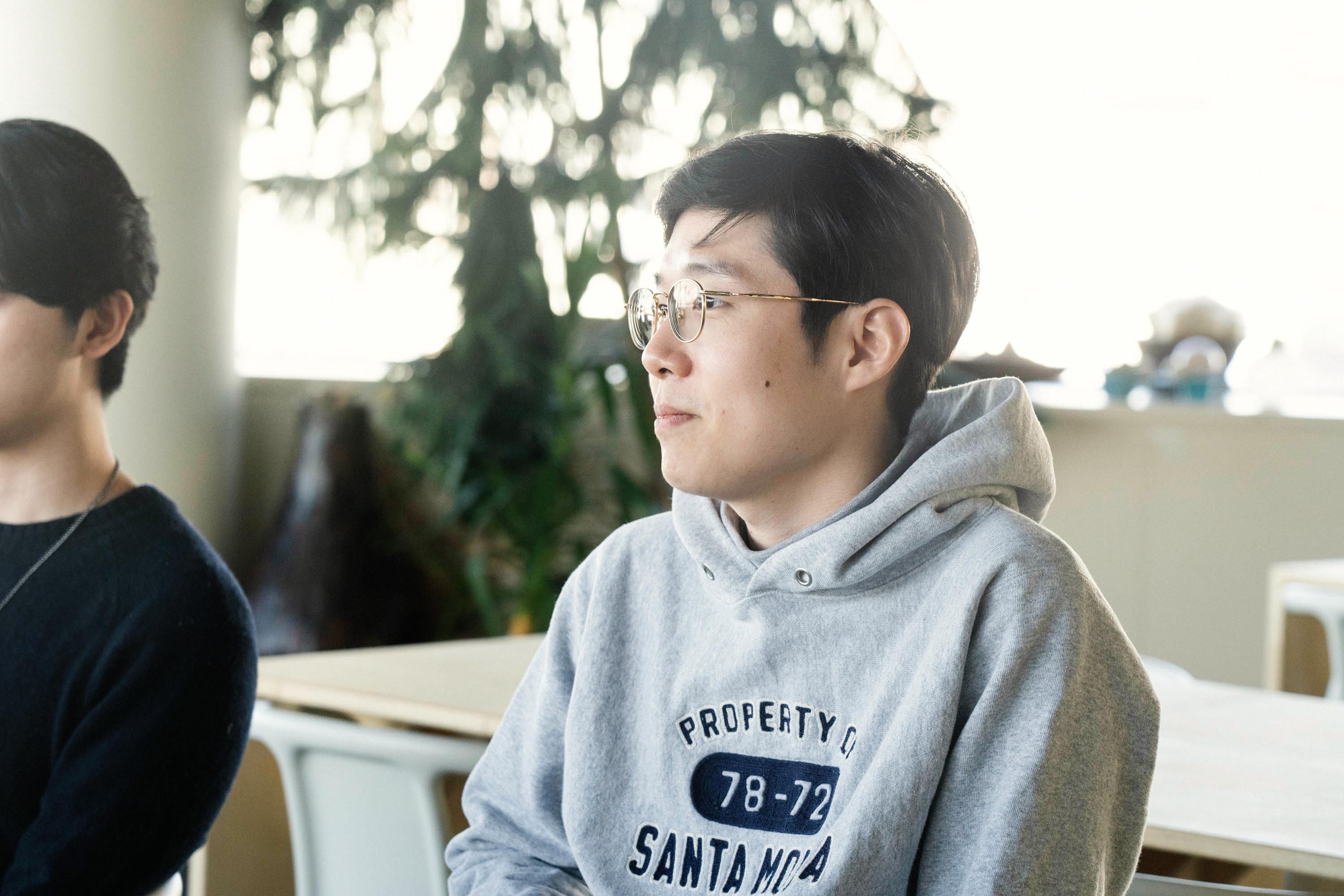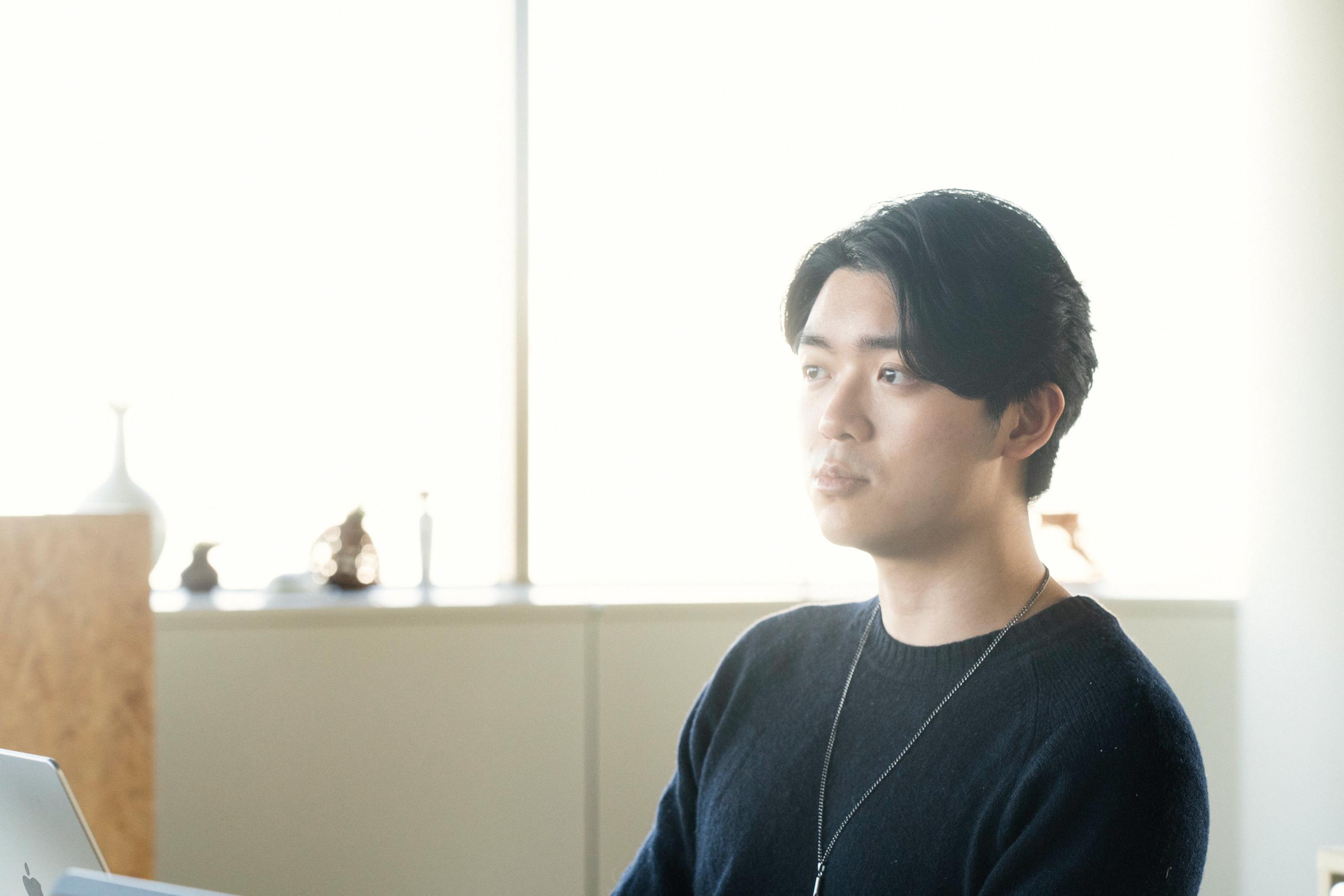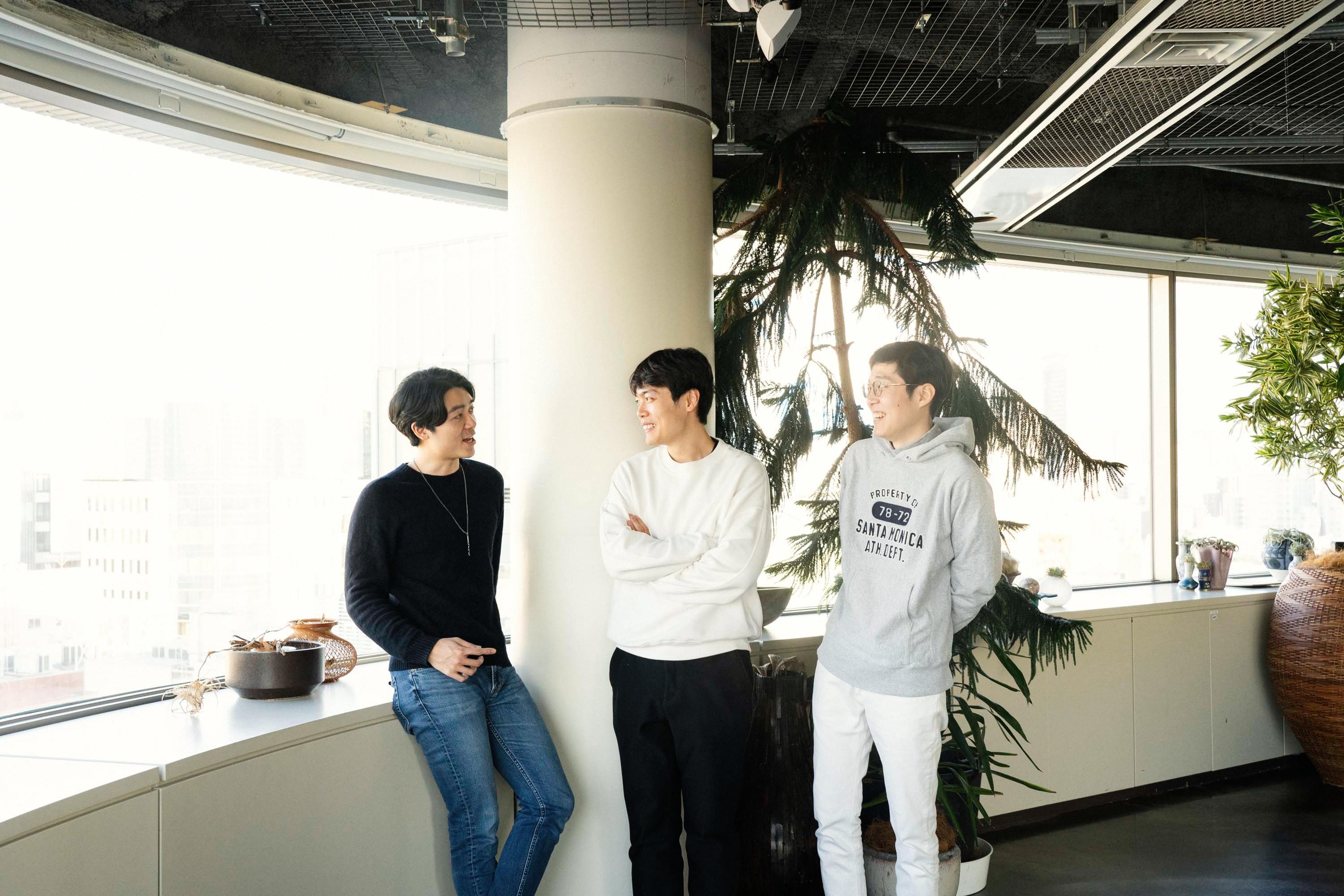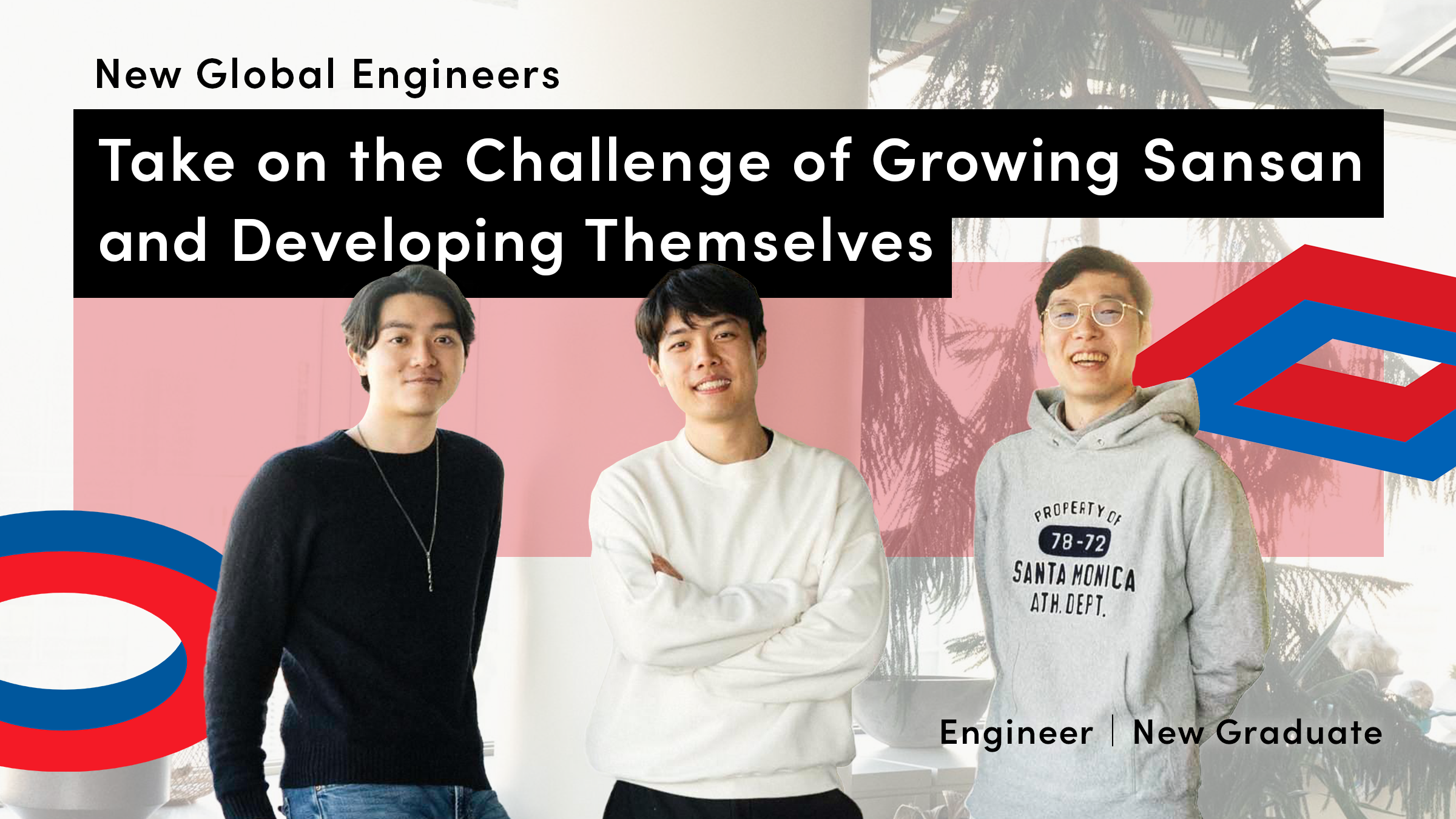
See Woo, Abraham, and Tom joined Sansan as newly graduated software engineers in 2022 and 2023. We spoke with them about their reasons for joining Sansan and to gain insights into their experiences with their work.
本記事は、外国籍の方に限らず、日本のエンジニアも通用する内容でもあります。これから活躍の幅を広げて行きたいと考えている皆さまもぜひご覧ください。
PROFILE
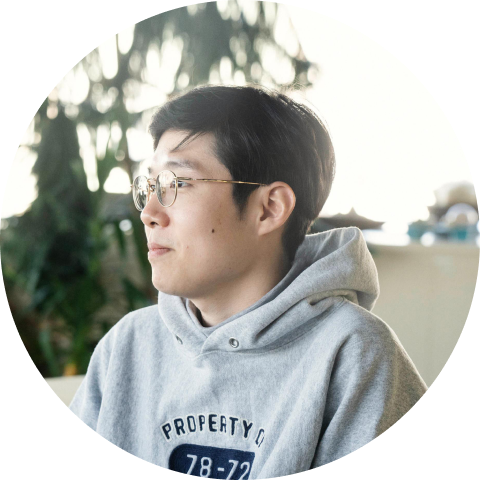
See Woo Lee
See Woo, from South Korea, lived and studied in Japan until moving to the US for his graduate studies. He joined Sansan in 2022 as a software engineer working on Bill One. His role includes software development and maintenance, and he is also an Agile Team Leader (ATL) for the global team managing scheduling and task prioritization for development tasks.
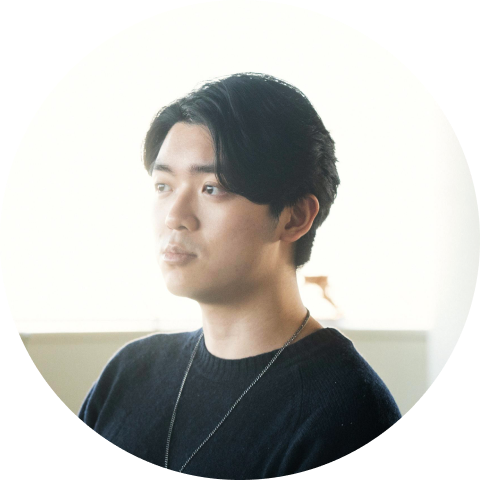
Abraham Wong
Abraham grew up in Hong Kong and did his undergraduate studies in Canada. He moved to Japan before joining Sansan in June 2023 as a software engineer. Abraham maintains and develops software for identification systems as a part of the Nayose Group in the Sansan Engineering Unit. This mainly involves managing data matching, data identification, and data relation handling.
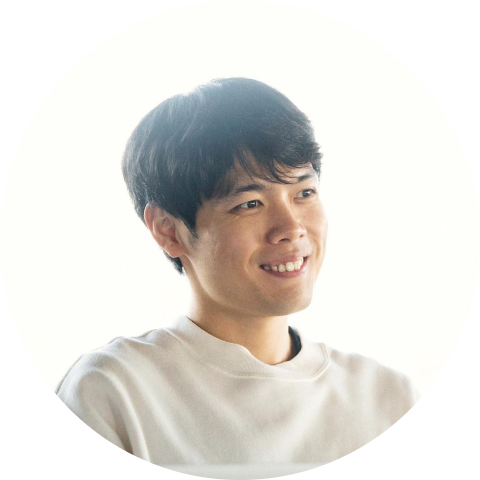
Tom Chen
Originally from China, Tom lived in the US from high school onwards and has been working in Japan since joining Sansan in April 2023. Tom works as a software engineer focused on Bill One. He’s responsible for the Bill One Business Card, development, and maintenance. He is also an ATL managing product development cycles overseas.
Did you want to work abroad when you were searching for jobs after graduation?
See Woo:Having experienced both Japan and the US, I wanted to work in Japan long-term. Japan has a lot of opportunities for software engineers because many companies are now focusing on digital transformation and trying to digitize their paper-based processes.
Abraham:When I graduated, I wanted to live and work in a third culture. Japan is a good balance between Hong Kong and Canada. Everything’s very convenient, and the rich culture and interesting people I meet every day help me to keep learning and growing.
Tom:I had never been to Japan before joining Sansan, but after living in the US, I was very interested in moving to a third country for work. Japan’s had high demand for engineers in recent years, and when I graduated I had the opportunity to choose to come here.
What was the biggest thing that made you want to join Sansan?
See Woo:I actually discovered Sansan through a recruitment agency, but I was instantly interested in the concept of business card management as a viable business. I knew Sansan was growing rapidly thanks to its unusual and unique business model. I thought Sansan had the potential to grow further, and that the company’s access to a lot of corporate data could allow it to expand business and create new and different opportunities.
Abraham:I also didn’t know about Sansan at first, but it was the first company I decided to apply to in Japan. I had a good impression of Sansan and its work. I could see that it was a good-sized company with plenty of growth, and it didn’t have the typical traditional Japanese company mindset.
Tom:Actually, I was introduced to Sansan by a friend who was interning here, working on Bill One. My first impression was that Sansan as a company was very clear in its product structure and goals. I also thought the company was very adaptable, having grown from a Japan-specific business card management company to one that included more universal products to adapt to overseas markets.
What do you find attractive about Sansan’s culture?
See Woo:It’s very easy to communicate with others both inside and outside your team here. This is helpful when you’re working on big projects that span different teams. One project assigned to the global team had a very challenging deadline, but I was amazed at how quickly we received a response from the other team in Bill One saying they could help out. This was all within one or two days, and communication was easy and smooth, so I’d say that inter-team collaboration is really easy and natural here.
Abraham:I also think the communication at Sansan is very effective, Everyone’s responsive, clear, and helpful. Everyone works together and supports each other. For those who are new to Japanese and may need a bit more help from the people around them at first, this is especially appreciated.
Tom:My biggest impression of Sansan’s culture is that everyone treats each other as an equal. Japanese companies are stereotyped as very hierarchical, but I’ve experienced the opposite at Sansan. I worked on one project that required a lot of work outside of the global team’s expertise. We had some technical obstacles where we needed to ask the product architect for assistance. I really appreciated how patient he was in explaining his ideas and suggestions to less-technical team members. Upper management at Sansan is also very down to earth.
What internal systems do you often use and what are your favorite points about them?
Abraham:There are also a lot of internal events, such as the year-end party and different clubs. I’ve joined a wide variety of sports and other clubs and this is a great way to meet others in the company. Clubs can help you get to know people by spending time together and making more connections.
Tom:My favorite internal system is Donicho. If you’re busy on weekdays with meetings or other responsibilities, you can choose to work on a weekend day and take a ¥weekday off in exchange. This is helpful for me as a software engineer, as I’m often busy with my other ATL responsibilities on weekdays. So, instead, I can focus on my development work and increase my productivity on the weekend. The H2O housing subsidy for those living near Omotesando or Shibuya is also great. Staff have to come into the office 3 days a week, but this suits my work style and helps me achieve a good work-life balance.
Are there any communication barriers at Sansan?
See Woo:There are some language barriers, but they’re not always that severe, and we work hard to lower them.
Abraham:My whole team is Japanese and nobody speaks English, so it was difficult for me in the beginning, especially during meetings that require high-context understanding. My team made efforts to adapt and simplify explanations to make these more understandable for everyone.
Tom:We have tools such as automatic translation to help support communication between international and Japanese staff members, and everyone’s very understanding of these barriers and how to work around them. Sansan also held a learning seminar called “Yasashii Communication,” [Gentle Communication] to train people to communicate mindfully.
Tell us about your personal growth as an engineer at Sansan
See Woo:After a year and a half, I’ve learned a lot about the software development process as a whole. For example, I’ve learned to identify the dependencies between tasks so that I can come up with an optimal way of completing those tasks. Gaining a holistic understanding of software engineering was more valuable than picking up programming languages or frameworks.
Abraham:Since our team is mostly handling data, I’ve learned a great deal about data management and how to use data to drive business decisions. On top of that, as our product is highly performance- and precision-focused, it teaches me how to design and create more reliable software. Being part of numerous design meetings has also boosted my teamwork skills. Learning how to communicate efficiently is extremely important for collaboration on a large-scale product.
Tom:The biggest thing I’ve learned is that software development is actually more about design than development. As an engineer, making things work is the bare minimum, and the focus should be on making the things you make more usable or expandable. I’ve learned a lot about software design and development cycle management through my work as an ATL. This involves business factors, like the project requirements, and human factors in terms of maneuverability, expertise, and ability to progress over time. An ATL also needs to think ahead to future development cycles and all the ways things could turn out.
What do you value the most about your work?
See Woo:I want to work in an environment where people trust one another and can assume everyone’s working together toward the same goals. This is the case for our team. While we do occasionally make mistakes, we trust each other to try our best and make the best product we can. This attitude helps to make the work environment less stressful and helps us to be more productive.
Abraham:It’s important to feel that I’m moving in the right direction. I want what I’m doing in my work to connect to my growth and to have a positive impact on the people around me and the product or customer. It is important that I can not only connect these but also continue to improve.
Tom:The value I place the most importance on at work is respect. No engineer knows everything, and we work in teams of individuals with different expertise. Things that may seem intuitive to one engineer could be a completely new concept for another, so it’s important to not look down on others’ knowledge gaps and to be patient when explaining what we know well. I also value willingness to take on a challenge. Once you start a job, you gradually become comfortable with your day-to-day work, but to continue to grow in terms of skills and professionally, it’s vital to take on new challenges. One member’s growth can help the entire team move forward and develop.
What kind of person do you most want to work with? And what sort of person is a good match for Sansan?
See Woo:I like to work with people who are proactive in asking questions about the company work policy, source code, and programming policies, and who get involved and share their opinions. Mutual respect is very important, as is being friendly and communicative.
Abraham:Communication is key within this company. It’s vital to try different ways of communicating because you’ll get better and better with practice. I also like to work with people willing to face challenges and explore areas out of their comfort zone. That kind of mindset can be infectious. It inspires others to push and grow beyond their own perceived limits.
Tom:I also want to work with people who are willing to challenge themselves and try new things. While Sansan is a medium-sized company, we have a startup mindset, so growth is definitely necessary for engineers.

